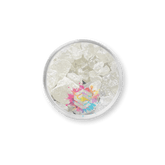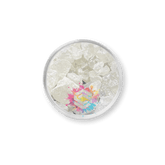Hemp 101: What’s the Difference Between Hemp, Cannabis and Marijuana?
🌿 The Root of the Confusion
All hemp and marijuana come from the same plant species — Cannabis sativa L. — but the law divides them based on chemistry, not botany. The only real difference is THC concentration, the cannabinoid responsible for psychoactive effects.
Hemp is legally defined under the 2018 Farm Bill as cannabis containing no more than 0.3% Delta-9 THC by dry weight. Anything higher is classified as marijuana. That fraction of a percent determines whether a farmer grows a federally legal crop or a controlled substance.
This distinction shapes everything — from how products are labeled and tested to how they can be sold or shipped across state lines.
⚗️ Hemp: The Legal Crop
Hemp refers to cannabis bred for low THC and high CBD or CBG content. It’s cultivated for industrial, wellness, and commercial use — from textiles and supplements to Delta-8 and THCA products.
Because hemp meets the federal definition of “non-intoxicating,” it can be transported and sold nationwide, though individual states may impose additional restrictions. Every hemp product you see on the Ghost Vapors site comes with verified Certificates of Analysis (COAs) proving compliance below 0.3% Delta-9 THC.
🌿 Marijuana: The Regulated Twin
Marijuana is cannabis that exceeds that 0.3% Delta-9 THC threshold. It remains federally illegal but is regulated at the state level for medical and recreational use.
Despite their chemical similarities, hemp and marijuana live in separate legal worlds. A plant with 0.29% THC is legal hemp; 0.31% THC is federally illegal marijuana — even though the two are virtually identical to the eye. This razor-thin line defines compliance and dictates how every hemp company must test, label, and sell its products.
🌸 Cannabis: The Umbrella Term
“Cannabis” is the scientific name that covers both hemp and marijuana. It’s the neutral term used by researchers and regulators alike. Understanding this hierarchy — cannabis as the species, hemp and marijuana as classifications — is crucial for anyone operating in the hemp industry.
When compliance officers or lab technicians use the term “cannabis,” they’re referring to the plant as a whole, not its legal identity. This subtle difference is where many newcomers to the industry get tripped up.
⚖️ Why Terminology Matters for Compliance
Precision in language protects your business. Labeling a product incorrectly — for example, calling a hemp-derived oil “cannabis extract” without clarifying its THC level — can trigger regulatory scrutiny or shipment holds.
Compliance begins with words. Accurate terminology builds trust with regulators, customers, and payment processors. It signals that your brand knows the rules and plays by them.
🔮 The Takeaway
Hemp, cannabis, and marijuana aren’t enemies — they’re branches of the same family divided by law and chemistry. Knowing where one ends and the other begins keeps your business compliant, your customers informed, and the industry moving forward.
👻 Ghost Vapors Hemp 101 is here to decode the language of the leaf — because understanding hemp starts with calling it by its right name.








![Bulk Delta 9 THCa Crumble for Sale - 96% 1 GRAM / Gorilla Glue #4 [H] Energy](http://ghostvapors.com/cdn/shop/files/Premium_Delta_9_THCA_Bulk_Crumble_for_Sale_Online_Bulk_Discount_Cannabis_Diamonds_for_Sale_Discreet_Shipping_9d4187e8-0887-4deb-b6de-6fc341d69424_165x.png?v=1754322451)



Leave a comment
Please note, comments need to be approved before they are published.